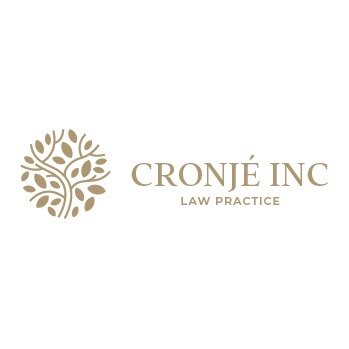Best Estate Planning Lawyers in Windhoek
Share your needs with us, get contacted by law firms.
Free. Takes 2 min.
List of the best lawyers in Windhoek, Namibia
About Estate Planning Law in Windhoek, Namibia
Estate Planning in Windhoek, Namibia involves organizing how a person’s assets will be managed and distributed in the event of their incapacitation or death. It encompasses creating wills, trusts, powers of attorney, and healthcare directives. The primary goal is to ensure that one’s wishes are respected, and beneficiaries receive their intended inheritance with minimal legal obstacles. Consulting with professionals is crucial as local laws and regulations can greatly influence the estate planning process.
Why You May Need a Lawyer
There are several situations where an individual might require legal assistance with estate planning:
- Drafting a Will: Ensuring that a will is legally valid and accurately reflects personal wishes.
- Establishing Trusts: Setting up trusts can help manage assets and plan for long-term care or for minor beneficiaries.
- Succession Planning: Business owners may need advice on transferring business ownership in the event of their passing.
- Avoiding Probate: Legal guidance can help structure estate plans to avoid lengthy probate processes.
- Tax Planning: An attorney can help minimize estate taxes and other related fees.
- Guardianship Arrangements: Planning for the guardianship of minor children requires careful legal consideration.
Local Laws Overview
In Windhoek, Namibia, estate planning is governed by a combination of customary law and statutory law. Key legal aspects that influence estate planning include:
- Wills Act No. 7 of 1953: Governs the creation and execution of wills, specifying necessary requirements for a valid will.
- Intestate Succession: Outlines how an estate is divided if no valid will exists, prioritizing close family members.
- Estate Duty Act No. 45 of 1955: Imposes estate duties on the transfer of wealth upon death, necessitating careful tax planning.
- Inheritance of Agricultural Land: Specific regulations may apply regarding the inheritance of agricultural property.
Frequently Asked Questions
What happens if I die without a will in Windhoek?
If you die without a will, your estate will be distributed according to intestate succession laws, which may not align with your personal wishes.
Can I write my own will?
Yes, you can draft your own will, but it's recommended to have it reviewed by a legal professional to ensure it meets all legal requirements and is enforceable.
How often should I update my estate plan?
It is advisable to review and update your estate plan every few years or after significant life events such as marriage, divorce, or the birth of a child.
What is a living trust, and do I need one?
A living trust is a legal document that places your assets into a trust for your use during your lifetime and specifies how they will be distributed after your death. It can help avoid probate and protect privacy.
How can I minimize estate taxes?
Strategic planning with an estate attorney can help minimize estate taxes through tools like gifting, charitable donations, and setting up trusts.
Are there special considerations for business owners?
Yes, business owners should consider succession planning to ensure smooth continuity and management of their business interests upon their death.
Who can be my executor?
You can name any competent individual as your executor, but it is wise to choose someone trustworthy and capable of managing your estate efficiently.
What role does a power of attorney play in estate planning?
A power of attorney designates an individual to make financial and healthcare decisions on your behalf if you are unable to do so, providing valuable continuity in managing personal affairs.
What should I include in my estate plan?
Key components generally include a will, durable power of attorney, healthcare directive, and possibly trusts, depending on your specific circumstances.
Can minors be beneficiaries?
Yes, minors can be beneficiaries, but provisions such as setting up a trust or appointing a guardian might be necessary to manage their inheritance.
Additional Resources
Consider exploring these resources for further assistance:
- Namibian Law Society: Offers guidance and lists of qualified estate planning attorneys.
- Master of the High Court: Oversees matters related to wills and estates in Namibia.
- Ministry of Justice: Provides information and resources on various legal frameworks including estate planning laws.
Next Steps
If you need legal assistance in estate planning, consider the following steps:
- Consult a Professional: Schedule a meeting with a local estate planning attorney to discuss your specific needs and objectives.
- Gather Documentation: Prepare relevant personal documents such as existing wills, property deeds, and financial statements.
- Outline Your Wishes: Clearly define how you wish your assets to be managed and distributed to guide your attorney effectively.
- Review Regularly: Keep your estate plan up-to-date, revising it as necessary with guidance from your legal advisor.
Lawzana helps you find the best lawyers and law firms in Windhoek through a curated and pre-screened list of qualified legal professionals. Our platform offers rankings and detailed profiles of attorneys and law firms, allowing you to compare based on practice areas, including Estate Planning, experience, and client feedback.
Each profile includes a description of the firm's areas of practice, client reviews, team members and partners, year of establishment, spoken languages, office locations, contact information, social media presence, and any published articles or resources. Most firms on our platform speak English and are experienced in both local and international legal matters.
Get a quote from top-rated law firms in Windhoek, Namibia — quickly, securely, and without unnecessary hassle.
Disclaimer:
The information provided on this page is for general informational purposes only and does not constitute legal advice. While we strive to ensure the accuracy and relevance of the content, legal information may change over time, and interpretations of the law can vary. You should always consult with a qualified legal professional for advice specific to your situation.
We disclaim all liability for actions taken or not taken based on the content of this page. If you believe any information is incorrect or outdated, please contact us, and we will review and update it where appropriate.













